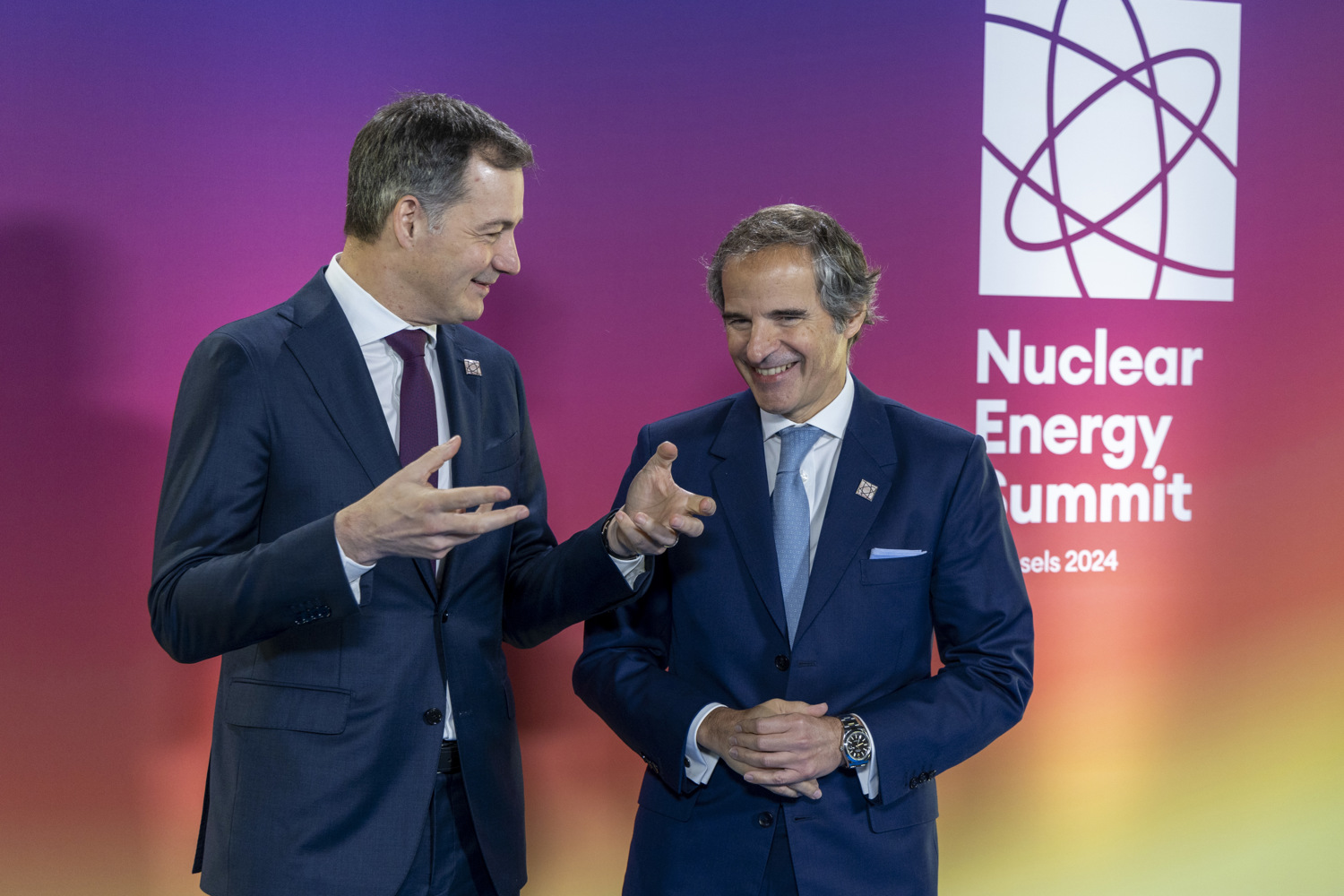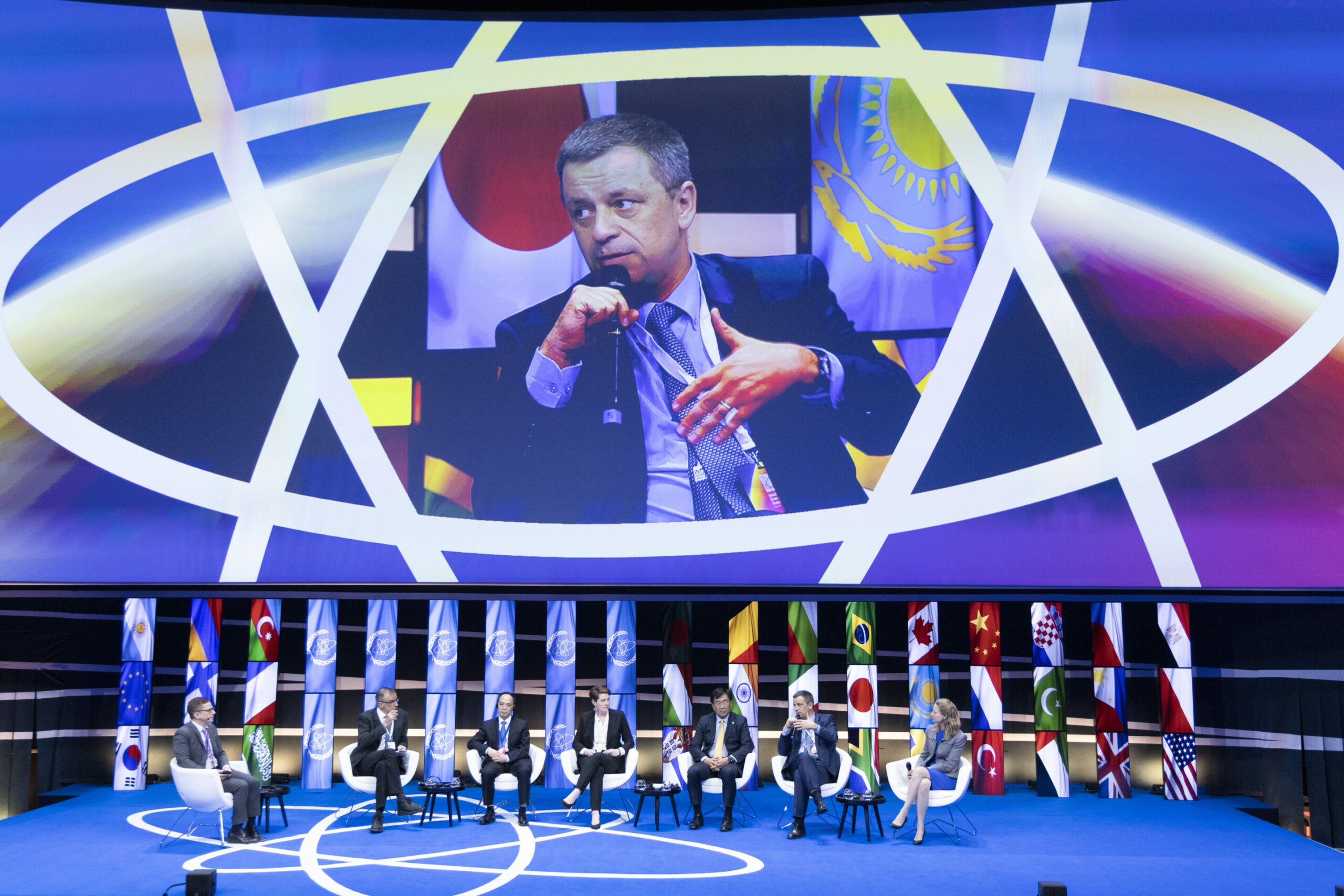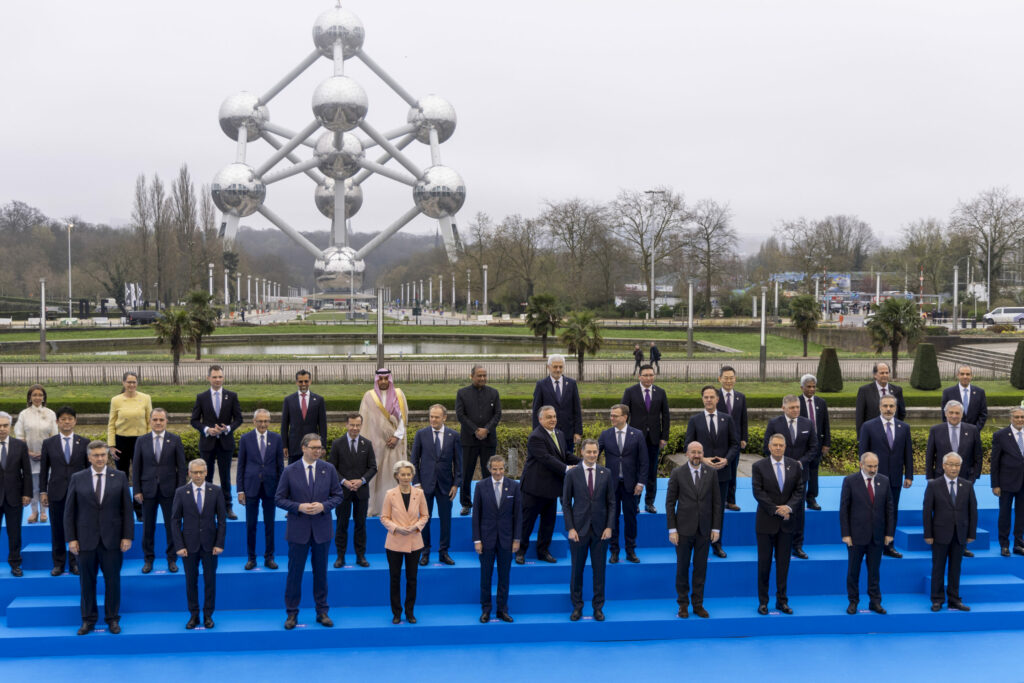Thirty global leaders and ministers from Europe and beyond have pledged their support for nuclear energy at a summit in Brussels.
In a joint declaration, they asserted that nuclear energy is a crucial part of global efforts to reduce greenhouse gas emissions, ensure energy security, boost energy resilience and promote sustainable development. The statement was released at the close of the Brussels Nuclear Summit, co-hosted by Belgium and the International Atomic Energy Agency (IAEA), near the Atomium, a landmark symbolic of Belgium’s 1950s atomic age.
The countries in attendance included Belgium, France, Italy, the Netherlands, Poland, the UK, Romania, China, the US, Brazil, Canada, South Africa, Egypt, Japan, India, Pakistan, South Korea and Saudi Arabia. The European Union was also represented.
They committed to develop nuclear energy by extending current capacities and constructing new facilities such as Small Modular Reactors (SMRs), in which Belgium and other nations are investing.
“We pledge to fully unlock the potential of nuclear energy by taking measures to support competitively financed extension of the lifespan of existing nuclear reactors, the construction of new nuclear plants, rapid deployment of advanced reactors, including SMRs, while maintaining highest safety and security standards,” the declaration read.
The intention is to ensure an open, global market to aid nuclear development, promote international exchanges and emphasise the central role of IAEA in state cooperation.
Though the decision to organise this first-of-its-kind summit predates the COP28 in Dubai, both the Belgian Prime Minister, Alexander De Croo, host of the summit, and IAEA’s Director-General, Rafael Grossi, recognised it as a turning point.
“Nuclear energy is part of the solution in achieving zero emissions by 2050. It’s not the solution but a part of it,” De Croo maintained. In his opinion, the nuclear-vs-renewables polarisation must end, citing that this debate has long been dominated by ideologies.

Credit: Belga
Grossi observed, "It took 28 climate conferences to acknowledge nuclear energy. Better late than never," stressing the need for concrete steps, mainly in financing.
Currently, nuclear power constitutes one quarter of the world’s sustainable energy, half of which is in Europe, Grossi elaborated. “But we need to do more. It’s not a beauty contest, but a combat in which all CO2-free energy sources are deployed to decarbonise as soon as possible.”
French President Emmanuel Macron, whose country is a nuclear energy leader, called for a balanced strategy, emphasising solidarity, renewables, and nuclear energy. "Neither all-nuclear nor all-renewable is good," he highlighted.
Concerns on Europe’s energy policy were raised primarily due to Russia’s aggression against Ukraine, featuring prominently in several leaders’ speeches including the European Commission’s President, Ursula von der Leyen, and the European Council’s President, Charles Michel.

EDF CEO Luc Remont (2R) pictured during a summit on nuclear energy, hosted by the International Atomic Energy Agency and the Belgian presidency of the Council of the European Union, Thursday 21 March 2024 in Brussels. Credit: Belga
Michel underscored the importance of Europe’s energy independence. "Russia has fired an economic missile at the European Union," he noted. The EU, therefore, needs sovereignty, including in the energy sphere, to no longer rely on “unreliable regimes."
The joint declaration’s section on "intensifying collective efforts to ensure energy supply security” stands out, especially as Russia, a leading uranium supplier, faces sanctions. Hungarian Prime Minister Viktor Orban, often diverging from his European counterparts when speaking of Russia, pointed this out.
"It’s in our common interest that nuclear energy doesn’t become hostage to geopolitical conflicts and ideological debates," he commented.

